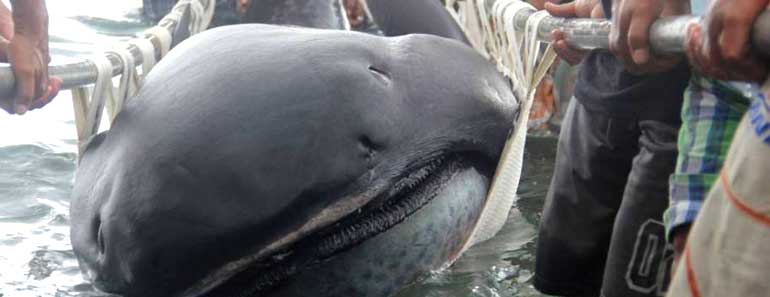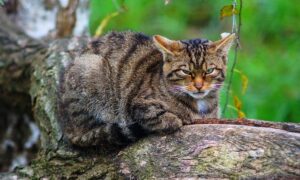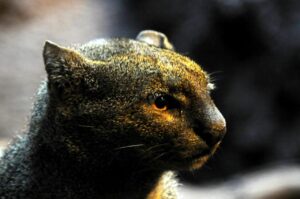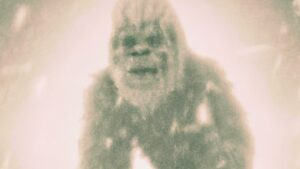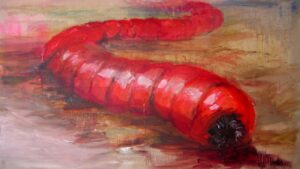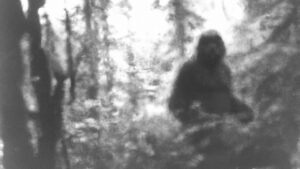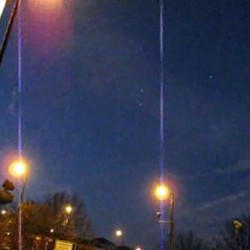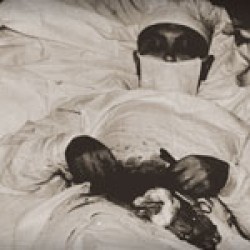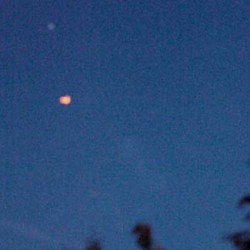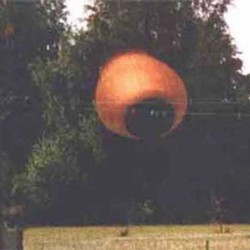A Rare rare 15-foot ‘megamouth’ shark has washed up in the Philippines. It is one of only 70 to have been seen in the world!

The shark, nicknamed ‘toothless’ by locals, was packed in ice by villagers in Marigondon in Albay province.
The sharks are one of just three species which feed on plankton, along with whales and basking sharks, so they’re unlikely to use their giant mouths to snap off human legs.
The sharks, whose name, megachasma pelagios, means ‘giant mouth of the deep’, move slowly along the bottom of the ocean with their mouths wide open eating plankton and jellyfish.
Metro.

The megamouth shark (Megachasma pelagios) is an extremely rare species of deepwater shark, and the smallest of the three planktivorous sharks, besides the whale shark and basking shark. Since its discovery in 1976, few megamouth sharks have been seen, with 60 specimens known to have been caught or sighted as of January 2015, including three recordings on film. Like the other two filter-feeders, it swims with its enormous mouth wide open, filtering water for plankton and jellyfish. It is distinctive for its large head with rubbery lips. It is so unlike any other type of shark that it is usually considered to be the sole extant species in the distinct family Megachasmidae, though suggestion has been made that it may belong in the family Cetorhinidae, of which the basking shark is currently the sole extant member. In addition to the living M. pelagios, however, two extinct megamouth species – the Cretaceous M. comanchensis and the Oligocene–Miocene M. applegatei – have also recently been proposed on the basis of fossilised tooth remains. (Wikipedia)

